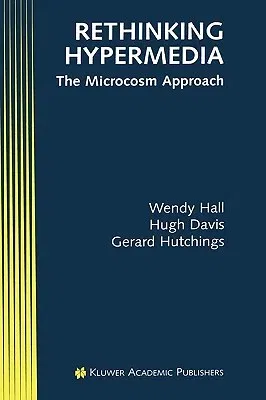Rethinking Hypermedia: The Microcosm Approach is essentially the story
of the Microcosm hypermedia research and development project that
started in the late 1980's and from which has emerged a philosophy that
re-examines the whole concept of hypermedia and its role in the
evolution of multimedia information systems. The book presents the
complete story of Microcosm to date. It sets the development of
Microcosm in the context of the history of the subject from which it
evolved, as well as the developments in the wider world of technology
over the last two decades including personal computing, high-speed
communications, and the growth of the Internet. These all lead us
towards a world of global integrated information environments: the
publishing revolution of the 20th century, in principle making vast
amounts of information available to anybody anywhere in the world.
Rethinking Hypermedia: The Microcosm Approach explains the role that
open hypermedia systems and link services will play in the integrated
information environments of the future. It considers issues such as
authoring, legacy systems and data integrity issues, and looks beyond
the simple hypertext model provided in the World Wide Web and other
systems today to the world of intelligent information processing agents
that will help us deal with the problems of information overload and
maintenance.
Rethinking Hypermedia: The Microcosm Approach will be of interest to
all those who are involved in designing, implementing and maintaining
hypermedia systems such as the World Wide Web by setting the groundwork
for producing a system that is both easy to use and easy to maintain.
Rethinking Hypermedia: The Microcosm Approach is essential reading for
anyone involved in the provision of online information.

